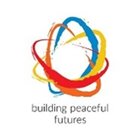Rebuilding water infrastructure in Iraq
“I love Sinjar so much because it is my homeland, my home, the place where I was born,” says 13-year-old Rana* from Iraq.
Rana is one of the 400,000 ethnic Yazidi people who were forced to flee when extremists swept across northern Iraq in 2014. Only six years old at the time, she vividly remembers leaving Sinjar with her family to hide in the nearby mountains. They stayed there for seven nights with little food and water.

Rana, 13, is thankful Save the Children helped restore her school’s water infrastructure
after the conflict in Sinjar, Iraq.
Sardashti*, Save the Children’s Community Engagement Coordinator in Iraq, shares her own experience of the conflict. She says, “when ISIS entered the community, they imprisoned women, killed men, demolished a lot of things, and destroyed the infrastructure.”
Sardashti remembers how her city’s water and electricity networks were purposely destroyed and thousands of homes reduced to rubble. Rana and Sardashti survived the conflict. Like 250,000 other Yazadis who sought refuge in neighbouring regions, their families were keen to go home but found they had nothing to return to.
Returning to rebuild
After more than 3 years of living in a displacement camp, Rana’s family was ready move back home. They join many Yazidis who are determined to rebuild their homes, despite the violence that continues to destabilise parts of northern Iraq.

Along with the Water Sanitation and Hygiene team, Sardashti helped restore access to clean water to
residents in Sinjar and Hawija.
Rana remembers the moment she returned to school. “When the schools opened, there were not many teachers…the old water tanks were perforated and the water was dirty so we just washed our hands with it.”
Through Save the Children’s Building Peaceful Futures project, Rana and her schoolmates now have safe water to drink.
“When Save the Children came, they distributed water tanks [and] water purification units were installed for us,” she says. “The organisation provided water tanks and sterilisers which is why the water is now clean.”
Sardashti explains how her team helped bring clean water to thousands of families. “We set up water distribution networks to most places of Sinjar,” she says, describing the enormous impact clean water has had on people’s lives.

Save the Children is supporting the people of Sinjar and Hawija,
who are struggling to rebuild after years of devastating conflict.
Community voices drive change
Save the Children has been operating in Sinjar since 2017 to support returning families. We work alongside communities and in partnership with local groups to help people find work, rebuild community infrastructure and provide essential services, such as healthcare and legal advice.
As part of the Building Peaceful Futures project, our team have established committees made up of volunteers from the community. People from diverse ethnic and religious backgrounds come together to help rebuild Sinjar. This is critical, given the ethnic tensions that have fueled ongoing violent conflict in the region.
One of the volunteers, Naam*, explains the importance of including diverse voices in the group so all community members are represented, and their different needs are addressed. “It is possible that every religion and every ethnicity has a certain point of view,” she says. “Maybe they know something that I don’t, and maybe I know something that they don’t know.”
Zima*, another key member of the committee, vividly remembers the atrocities that occurred in Sinjar. She faced great difficulty in returning, but believes in the importance of rebuilding. She generously shares her knowledge with the community.
“Returning back to Sinjar, we must have a strong heart to face everything,” Zima says.

Zima, 20, is a member of Save the Children’s community commiteee in Sinjar,
lending her voice and expertise to help rebuild Sinjar.
The Building Peaceful Futures project is supported by the Australian Government through the Australian Humanitarian Partnership, and is implemented by Save the Children, Humanity and Inclusion, CARE and the Norwegian Refugee Council.


*Names have been changed for privacy.
Photos: PI/Save the Children.